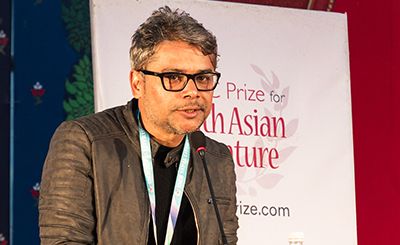
Andrew Otis. Photo courtesy of the author
Set in the seat of British power in India, the Calcutta of the 18th century, Andrew Otis’s book, Hicky’s Bengal Gazette, The Untold Story of India’s First Newspaper, tells us exactly that. The story of James Augustus Hicky as the architect of the first newspaper in India is celebrated, but some parts of the story where he has fought against the Church for embezzlement of funds and the state for corruption, and his constant confrontation with people in power, are not known in their details. Otis, after a meticulous five-year research and over a hundred drafts, has built up a vibrant creative non-fiction narrative around three characters: the journalist, James Augustus Hicky, the missionary Johann Zacharias Kiernander, and the Governor General Warren Hastings.
If you had asked Andrew Otis, a former Fulbright scholar and a PhD student studying Journalism in Maryland, what he wanted to do with his life seven years ago, he would have never answered ‘write a book on India’s first newspaper’. In 2011, when he graduated with a B.A. in history from Rochester, and the only thing he had in mind was an interesting newspaper he had studied at the university. In the dark basement stacks of his university’s library, he had found a reprint of the memoirs of Hicky’s lawyer, curiously enough named Hickey. He was captivated by the first-hand account of Hicky’s struggle for the freedom of the press against all odds, spending years in prison fighting for his right to print, challenging the rule of the most powerful men in British India, like Governor General Warren Hastings. Hicky’s story beckoned Otis, but he lacked funding. Then, as he was graduating, he was awarded the O’Hern Fellowship and he was now off on the tracks of Hicky.
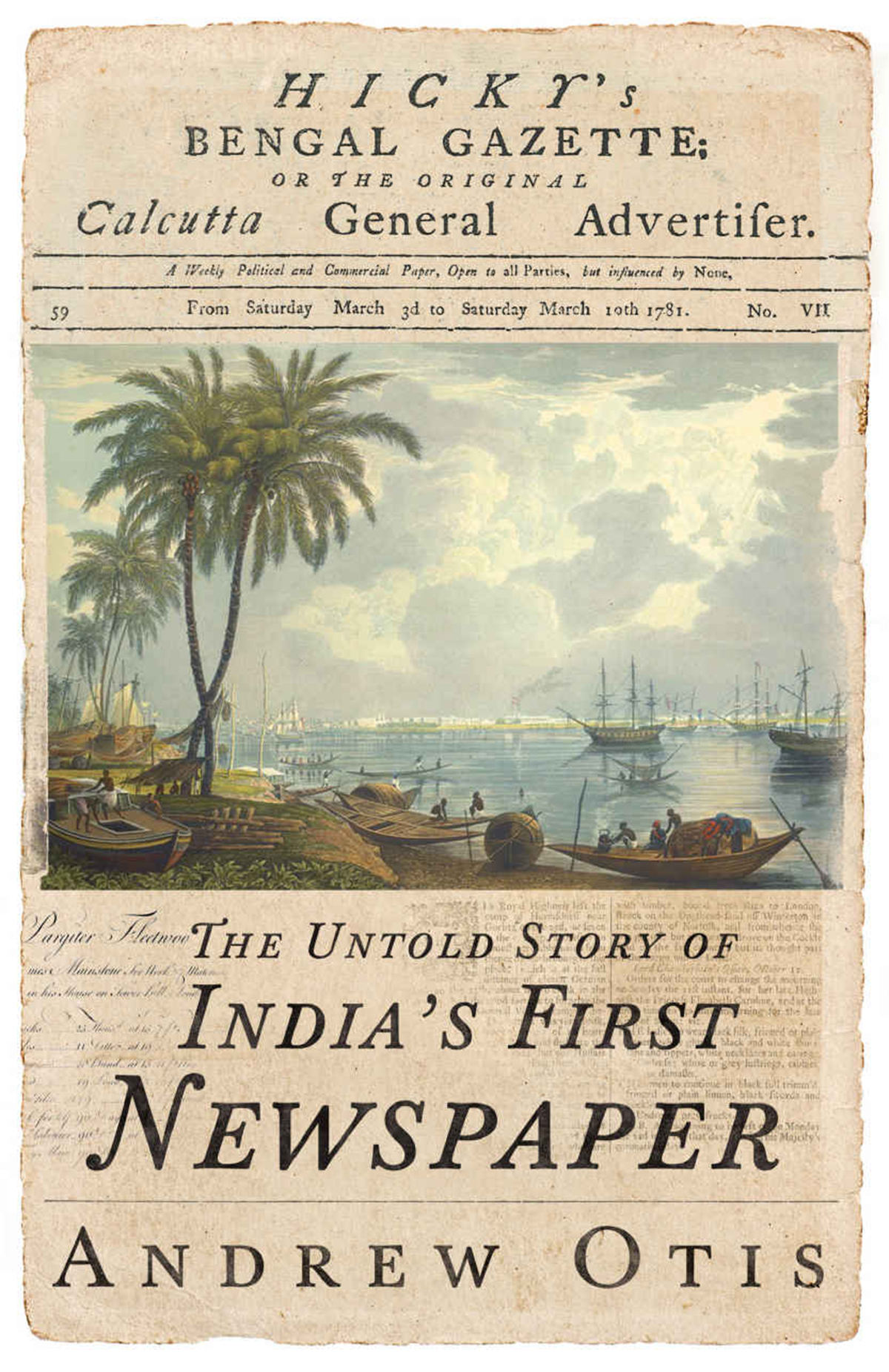
It took him five years to research and write his book. “One thing I’ve had to confront is that I will not be rich as a writer. In total, I had only about a year and a half of research funding, so for the other three and a half years, I had to fund my research myself. There were long periods of time I had to live very cheaply,” says Andrew Otis. And research and writing can be lonely. There were long periods of time where he did not interact much with friends or family, he was away in an archive or writing alone. Here’s his journey to the book.
Suneetha Balakrishnan: What was the biggest hurdle in your quest for information?
Andrew Otis: My biggest hurdle was synthesizing information. To understand this story, I had to learn a lot about Indian history very fast. Sometimes I read or found a piece of information that I did not think was important, only to find out it was crucial, months later. For instance, I once read a book in which the author mentioned a rumour that Hicky had re-started his newspaper after he was released from jail. At first I couldn’t find any corroborating information so I forgot about the rumour. Years later, I found a primary source recounting that Hicky did indeed re-start his newspaper (but nothing became of it). So, as a writer you never know when something might be important later.
This leads to the second problem of synthesizing. Research was a balancing act between recording and speed. My document where I wrote notes from archives is almost 500 pages long. And I downloaded and read almost a thousand scholarly articles.
Suneetha Balakrishnan: Which part of your research did you enjoy most?
Andrew Otis: I love the feeling of finding something new, something that hasn’t been seen in hundreds of years. I stumbled across Hicky by reading his lawyer’s memoirs at the British Library; I saw the lawyer’s original memoirs (in their handwritten form before they were printed). The printers had neglected to print large sections. I found valuable information that had never made it into the printed version, such as that the reason Hicky came to India was he had worked on slave ship in Africa as a surgeon’s mate but had not gained ‘a shilling’, so he hoped to earn more money in India. No one knew this before me. The lesson I learned was that it is always important to investigate the source!
Suneetha Balakrishnan: As an academic, what do you think are the advantages of using a creative non-fiction structure?
Andrew Otis: My goal was to write a book that is enjoyable for an average person and also academically valid. If I have done my job right then the reader will get to the last page, close my book, and think ‘What a wonderful story’. Likewise, if I have done my job right the academic will think ‘What a contribution to knowledge’.
Humans learn best when information is presented as a story. That’s why I think creative non-fiction can be superior to a dry scholarly biography or an academic reportage as a teaching mechanism.
Suneetha Balakrishnan: What difference did you see in the archiving methods of India and Britain?
Andrew Otis: I noticed many differences between archiving methods in India and Britain. But I should be clear: as much as archiving practises differ between countries, they really differ more between archives themselves. I think one of the difficulties for researchers working on colonial history is the need to visit archives in India and outside India; perhaps that’s why no one has written fully about Hicky before. All previous authors like P. T. Nair and Tarun Kumar Mukhopadhyay have visited either the archives in India or Britain so they got only half the story. It really took someone who had flexibility and time to write this story.
I think, sadly, things like getting visas, or securing research funding can be far more difficult for Indian scholars than it was for me. I wish borders were more open and research funding more widely distributed, but it’s not something I have control over.
The greatest difference I noticed between Indian and foreign archives, was in their responses to email enquiries. I often found that I could email archives in the U.K., America, Germany, Australia etc and they would be willing to scan and email the document I wanted. I found that American archives often were willing to email documents for free; elsewhere archives sometimes charged a fee. So, sometimes it’s helpful just to email ahead of time and ask!
The second is in cataloguing, which was often incomplete in India. For instance, the catalogue at the High Court of Calcutta was missing. That said, the National Archive of India has recently put much of their catalogue online: http://www.abhilekh-patal.in/jspui/ which is a great achievement. Look out for typos, though.
The third was permissions and copyrights. At the High Court of Calcutta, where I spent much time, I had to get permission to see almost anything, to my endless frustration; getting permissions could take weeks or months. The High Court of Calcutta was like the License Raj for research. Likewise, the National Library of India had seemingly arbitrary rules on what and how much of documents could be photocopied. It seemed unfortunate that while much of the world is trying to open and democratize knowledge, many Indian archives still cling to hiding away their knowledge.
Suneetha Balakrishnan: Do you see yourself writing a sequel/by-products of the research you did for Hicky?
Andrew Otis: This is something I had not given thought to beforehand. I have some by-products in mind. I am currently writing an academic paper inspired by Hicky on jury nullification. In the 18th century journalists were very vulnerable to being sued for libel. One of the reasons was because prosecutors didn’t have to prove that the journalist had malicious intent (due to complex legal reasons). Therefore almost anything could be libel if someone said it was. I am writing a paper that journalists in the 18th century tried to convince juries they did not print with malice. This was technically an illegal argument, but journalists used it anyway, and were quite successful. This is something I didn’t get to elaborate on in my book.
Suneetha Balakrishnan: How has been the response to the book so far?
Andrew Otis: The response has been wonderful and overwhelming so far. If I can bring more awareness to this important piece of Indian history, then I consider my job a success. If people like the book and enjoy reading it because it is a wonderful story, I will be happy.
More from The Byword
Comments
*Comments will be moderated



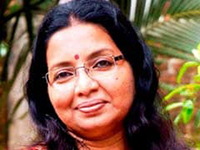

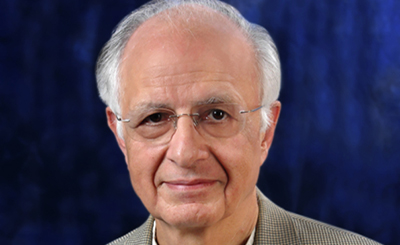


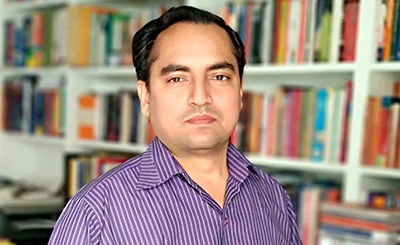

THUMB.jpg)
